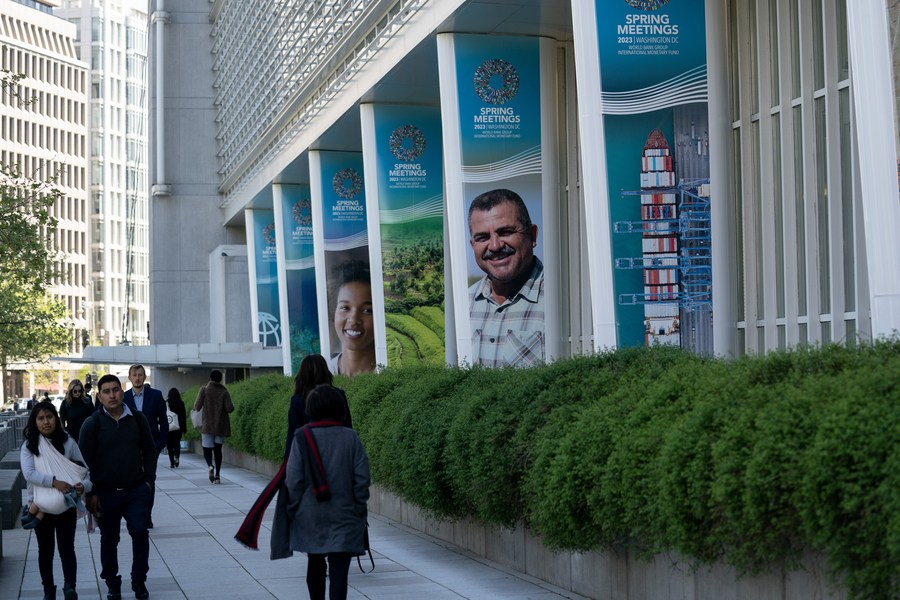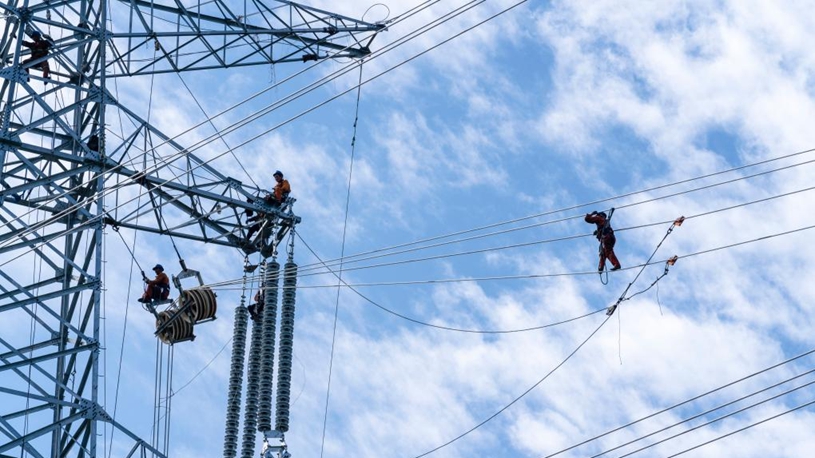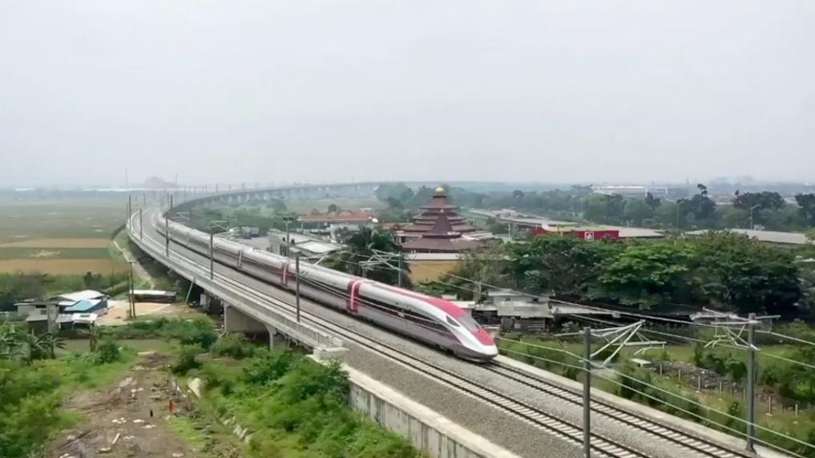
Pedestrians walk past the World Bank headquarters in Washington, D.C., the United States, April 10, 2023. (Xinhua/Liu Jie)
The World Bank on Wednesday forecast sub-Saharan Africa's economic growth to decelerate to 2.5 percent in 2023 from 3.6 percent in 2022.
NAIROBI, Oct. 5 (Xinhua) -- The World Bank on Wednesday forecast sub-Saharan Africa's economic growth to decelerate to 2.5 percent in 2023 from 3.6 percent in 2022.
The Bank said in its latest Africa Pulse report that the economic outlook remains bleak amid a subtle growth recovery, noting that Africa must urgently achieve stability, increase growth and create jobs to avert a "lost decade."
Andrew Dabalen, World Bank chief economist for Africa, said the region's poorest and most vulnerable people continue to bear the economic brunt of this slowdown, as weak growth translates into slow poverty reduction and poor job growth. "With up to 12 million young Africans entering the labor market across the region each year, it has never been more urgent for policymakers to transform their economies and deliver growth to people through better jobs," Debalen added.
According to the report, South Africa's gross domestic product is expected to only grow by 0.5 percent in 2023 as energy and transportation bottlenecks continue to bite.
The Africa Pulse projects economies in Nigeria and Angola to grow at 2.9 percent and 1.3 percent, respectively, due to lower international prices and currency pressures affecting oil and non-oil activity. According to the report, increased conflict and violence in the region weigh on economic activity, and this rising fragility may be exacerbated by climatic shocks. In Sudan, the report says economic activity is expected to contract by 12 percent because of the internal conflict which is halting production, destroying human capital, and crippling state capacity.

This photo taken on Sept. 28, 2023 shows passenger buses hit by an artillery shell launched by the Sudanese paramilitary Rapid Support Forces at Al-Jarrafa neighborhood, Sudan. (Xinhua)
Nicholas Woolley, World Bank economist and contributor to the report, said the urgency of the jobs challenge in Sub-Saharan Africa is underscored by the huge opportunity from demographic transitions that we have seen in other regions. "This will require an ecosystem that facilitates private-sector development and firm growth, as well as skill development that matches business demand," Woolley added.
The World Bank said the development of labor-intensive manufacturing seems to be missing in Africa, limiting further effects for the indirect job creation in support services and international trade. "This may be partly due to a lack of capital, which continues to hamper the structural transformation required for good quality jobs," the lender said.
Despite the gloomy outlook, the report says inflation is expected to decline to 7.3 percent in 2023 from 9.3 percent in 2022 and fiscal balances are improving in African countries that are pursuing prudent and coordinated macroeconomic policies.
According to the World Bank, the Eastern African Community is expected to grow by 4.9 percent while the West African Economic and Monetary Union is set to grow by 5.1 percent.
The report, however, warns that debt distress remains widespread, with 21 countries at high risk of external debt distress or in debt distress as of June. ■












